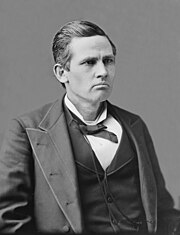Aloha and the Progressive Storm
~~
While American troops were establishing the new order of Haitian politics, another army, significantly smaller, was preparing to set sail from the Los Angeles Naval Depot. The army, unknown to the US Congress, was headed for the small island kingdom of Hawaii. Over the last 3 years, tens of thousands of Americans (up to 90 thousand at one point) had moved to the small islands, some for the fruit trade, and others for the life available in this 'virgin soil'. So many Americans, and Japanese, moved to these Islands that the natives rapidly became a minority. The American government knew that the Japanese, rapidly emerging from a long period of civil unrest, was expanding with the distinct purpose of capturing Hawaii. So, President Harrison struck first. Thousands of American soldiers landed on the island nation, and within hours, the American flag flew from all the Hawaiian Islands.
The presence of American troops on the Hawaiian Islands sent the Japanese immigrants into a whirlwind of rebellion. Led by progressively more violent rebels, the Japanese civilians on the islands led strikes against the US Army bases and against the fruit companies. After the murder of Admiral Worthington by Japanese rebels, the American troops fire back. Hundreds of supposed rebels were killed or arrested, and many others were exiled to some of the smaller islands. Territorial governor James Henderson Blount established the "Island System", in which different minorities were placed on different islands, although there was some intermixing, the races were separated in Hawaii.
James Henderson Blount
The victory went unnoticed by most Americans, who were busy with the rapid development of new railways, the opening of hundreds of new mines and factories, and the development of a large number of new unions, including the United Mine Workers Union. These unions helped spark mass strikes across the mid-west. The states of Ohio, West Virginia and Kentucky were virtually shut down by strikers, demanding workers compensation, a minimum wage and other 'modern' industrial concepts. While some businesses and industries did cave in, many others called upon the state to send troops into end the strikes. This singular event would change the face of American politics in the years to come.
All across the country, Populist Party roles increased dramatically, including in the South. Led by former Virginia governor William Cameron, Southern Populists had dramatic success in the East and in the West. For the first time, a white politician found large support among Black workers in the South. Cameron was cheered by workers wherever he went. Soon American workers called his name when they went on strike. Soon other local populist leaders rose to prominence. These "Cameroons" helped organize Southern opposition to industrial and corporate power. Even as President Harrison worked the party into his own image, planning on the eventual transference of power to his successor, the South and the West were trapped in the throws of Populist Revolt.
James Paul Clarke, a "Cameroon" and reformer from Arkansas.




